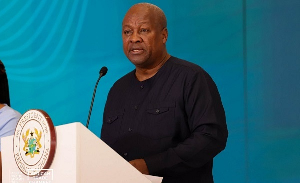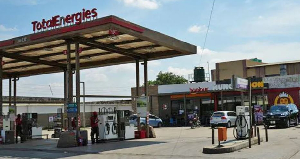General News of Saturday, 29 August 2020
Source: myxyzonline.com
‘Is it not madness?’ – Abraham Koomson blasts govt over collapsed banks
Secretary General of the Ghana Federation of Labour (GFL), Mr Abraham Koomson, has bemoaned the loss of jobs following the collapse of some banks through the Akufo-Addo government’s financial sector clean-up.
The labour expert who plies his trade in the textile industry observed the government’s decision to collapse the financial institutions, most of which needed strict guidance to survive and sustain jobs, was insensitive.
Speaking to Kwame Minkah on Dwaboase on Power FM, Mr Koomson noted that thousands of the youth had been badly affected by the banking sector clean up, contrary to the ruling New Patriotic Party’s (NPP) slogan that they are for job creation.
“Instead of saving the banks to sustain jobs they collapsed the banks. Kwame, if your child always falls sick do you have to hit his head against a tree to kill him rather than healing him? Is that not madness?” He fumed as he chastised the government over the action which most pundits and analysts have termed as political persecution.
Some analysts have alleged that the government, led by the Governor of the Central Bank Dr Ernest Addison and Finance Minister Ken Ofori-Ata, a cousin to President Akufo-Addo, instead of reviving the banks by appointing partners to manage the banks and get them back on track chose to go after those that were owned by their political opponents.
Background
In the past two years, the Bank of Ghana’s reforms has led to the collapse of nine local banks, 347 microfinance institutions and some 23 finance houses.
On 1 August 2018, the Bank of Ghana announced the consolidation of the failed local banks, which included the Royal Bank, Beige Bank, Construction Bank, Sovereign Bank and uniBank. Later on, HBL and Premium Bank were added to the first five.
The collapse of the nine local banks birthed the state-owned Consolidated Bank Ghana (CBG) Limited.
This was after the Central Bank on 14 August 2017 approved the takeover of UT Bank and Capital Bank, by the state-owned GCB Bank Limited.
More than 152,000 depositors have been affected since the these Micro Finance Institutions, Savings and Loans Companies and banks were folded up for what the government described as their inability to meet liquidity standards.
Some frustrated customers, some of which have been ejected from their homes for their inability to pay their rent, as businesses of others have suddenly collapsed resulting in sleepless nights and hunger among thousands.
Promises
Following demonstrations upon demonstrations for their monies; curses, assurances have been given by the government to refund the deposits amidst modalities, but till date tens of thousands have virtually been disappointed even after President Akufo Addo’s assurances in December last year which was firmed up during the Stateo of the nation address that all monies will be paid.
Last year, President Akufo-Addo announced some 15.6bn had been allocated to cater for the frustrated customers’ needs as pressure and threats heightened.
A letter addressed to the Minister of Finance, Mr Ken Ofori-Atta, by the President’s Executive Secretary Nana Asante Bediatuo, said, “The President has granted executive approval for an expenditure of up to fifteen billion six hundred million Ghana cedis (GHC15,600,00,00.00) toward protecting depositors and investors of failed financial institutions and to improve liquidity of the financial sector”.
At the 2020 State of the Nation Address, President Akufo-Addo again confirmed before Parliament the monies have been released and stated payment was to begin on February 24, 2020.
However, four (4) months after the pledge, the disgruntled customers are yet to receive their funds in full. Others have reported a paltry 5% of their total deposits which is fast dwindling confidence in the Akufo-Addo government that is battling to fulfill half of its manifesto promises prior to the 2016 general elections that brought the NPP to power.
Youth Unemployment Dangerous
But Mr Koomson, who witnessed the post colonial era industrialization drive of the late Dr Kwame Nkrumah, stated that the NPP government presented to Ghanaians a policy document that talked about creating jobs for the youth through production but has failed to fulfill the promise.
Although the Akufo-Addo government touts itself with one of its flagship industrialization programmes – 1 District, 1 Factory (1D1F)- Mr Koomson says it has not seen much impact since government-funded factories are yet to be built across the country as promised in the run up to the 2016 elections.
He also suggested that there be a deliberate agenda by the government to revive collapsed factories and get new ones to focus on raw materials from the agric sector to create employment for the youth of the country.
Besides, Mr Koomson urged the government to “slash the plenty taxes on local producers” to give factory owners room to produce more and employ some more workers.












